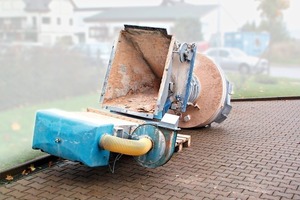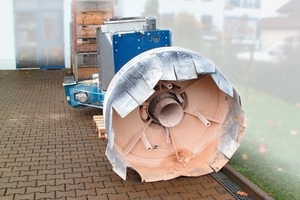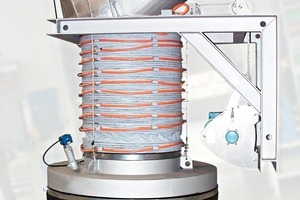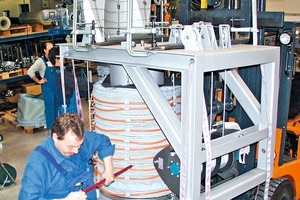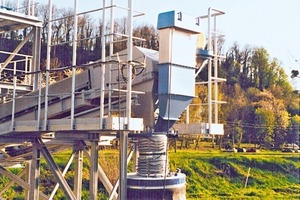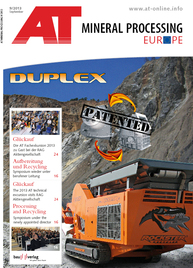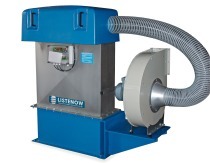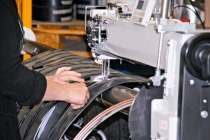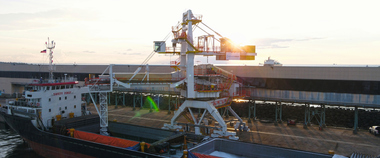As good as new – renovation as a viable alternative
Loading units are subjected to extreme stress on a daily basis when loading abrasive bulk goods, such as coarse or fine-grained construction aggregates (Fig. 1). Stone, gravel and sand particles constantly come into contact with containers, transfer points, loading hoses and the rubber skirting of dust hoods. As a result, even the toughest components are vulnerable to abrasion from dense and rough materials. On one hand, this causes considerable damage to the relevant parts, which in turn leads to costly repairs and expensive disruption and downtime. On the other, units frequently need to be adapted to suit different bulk materials, something that also comes at a financial and production cost.
In order to ensure efficient operation and holistic optimisation, Listenow GmbH & Co offers dependable and cost-effective solutions geared towards minimising downtime during the engineering as well as the implementation phase. For example, during modernisation of a loading system equipped with a flushing filter for the transfer of construction aggregates to a river barge, cost is not the only factor taken into consideration, the increase in value of the loading system is also taken into account.
Following comprehensive analysis by the specialist team at Listenow and on the basis of the specific demands of the customer, holistic renovation of the existing system is carried out on the customer side, as opposed to the purchase of an entirely new unit. Once thorough cleaning has taken place and all metal components have been sand blasted, the unit is dismantled and all individual components are checked. By replacing damaged or worn parts, the system can be updated to the latest technical specifications (Fig. 2).
In the event that the shape and size of the bulk material to be processed has changed, installation of a robust loading system with telescopic sections and a ventilation pipe can significantly improve performance. Existing ventilation and filter systems are always adapted to the changing requirements, as are the all electrical components and mechanical parts (Fig. 3). As a result, it was possible to resume loading of barges to the full satisfaction of the site operator after just five days, including collection and installation at the existing loading station.

